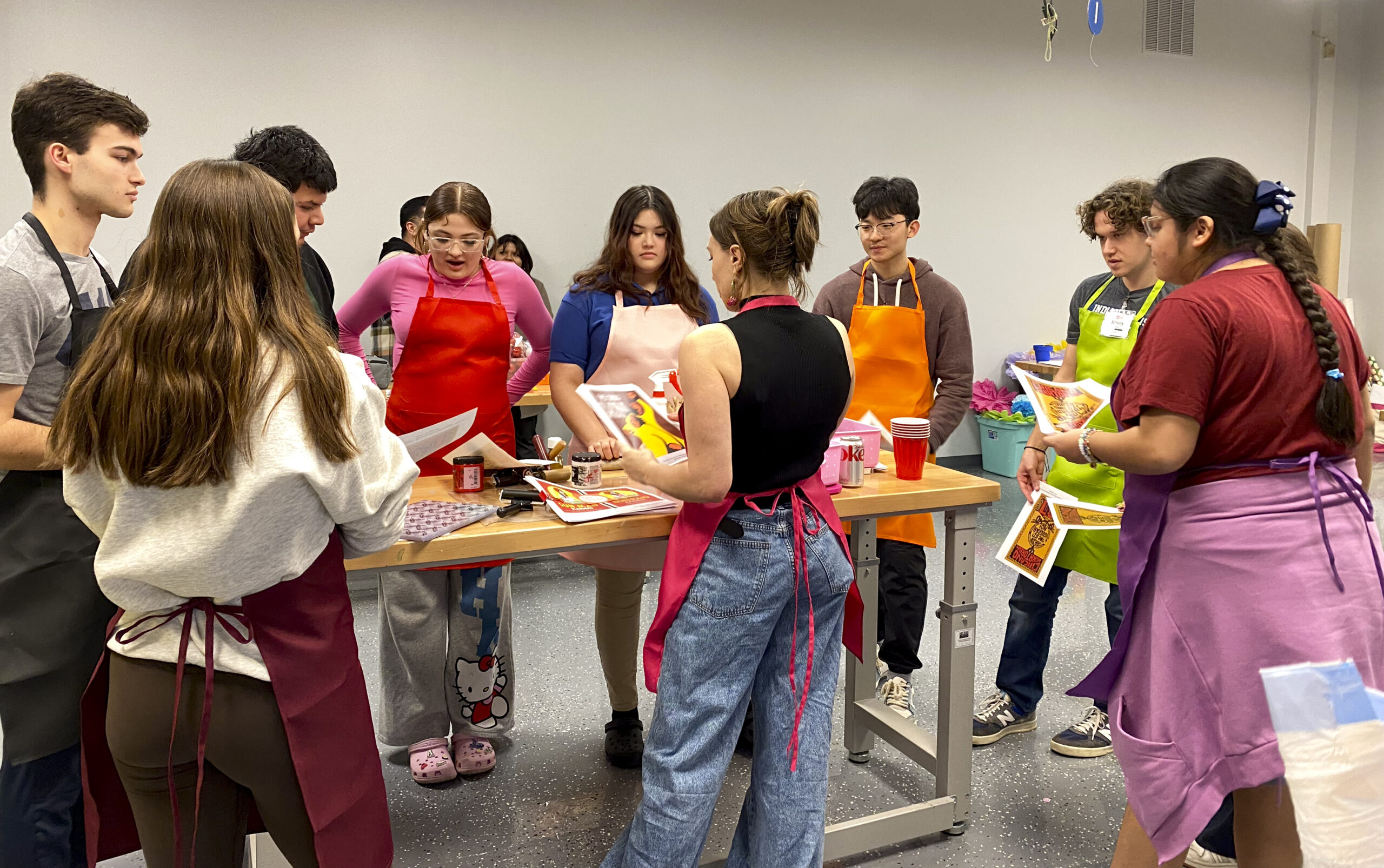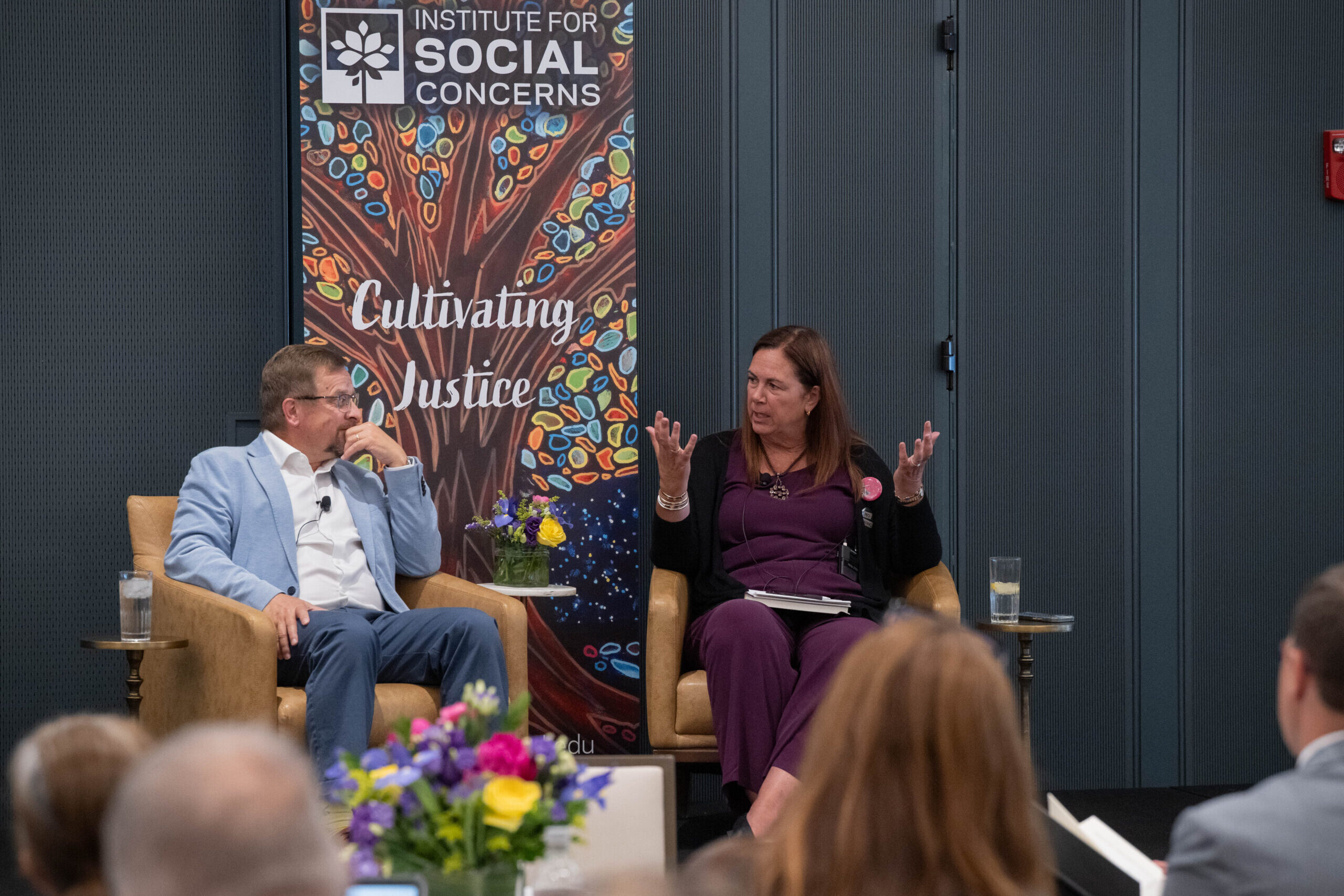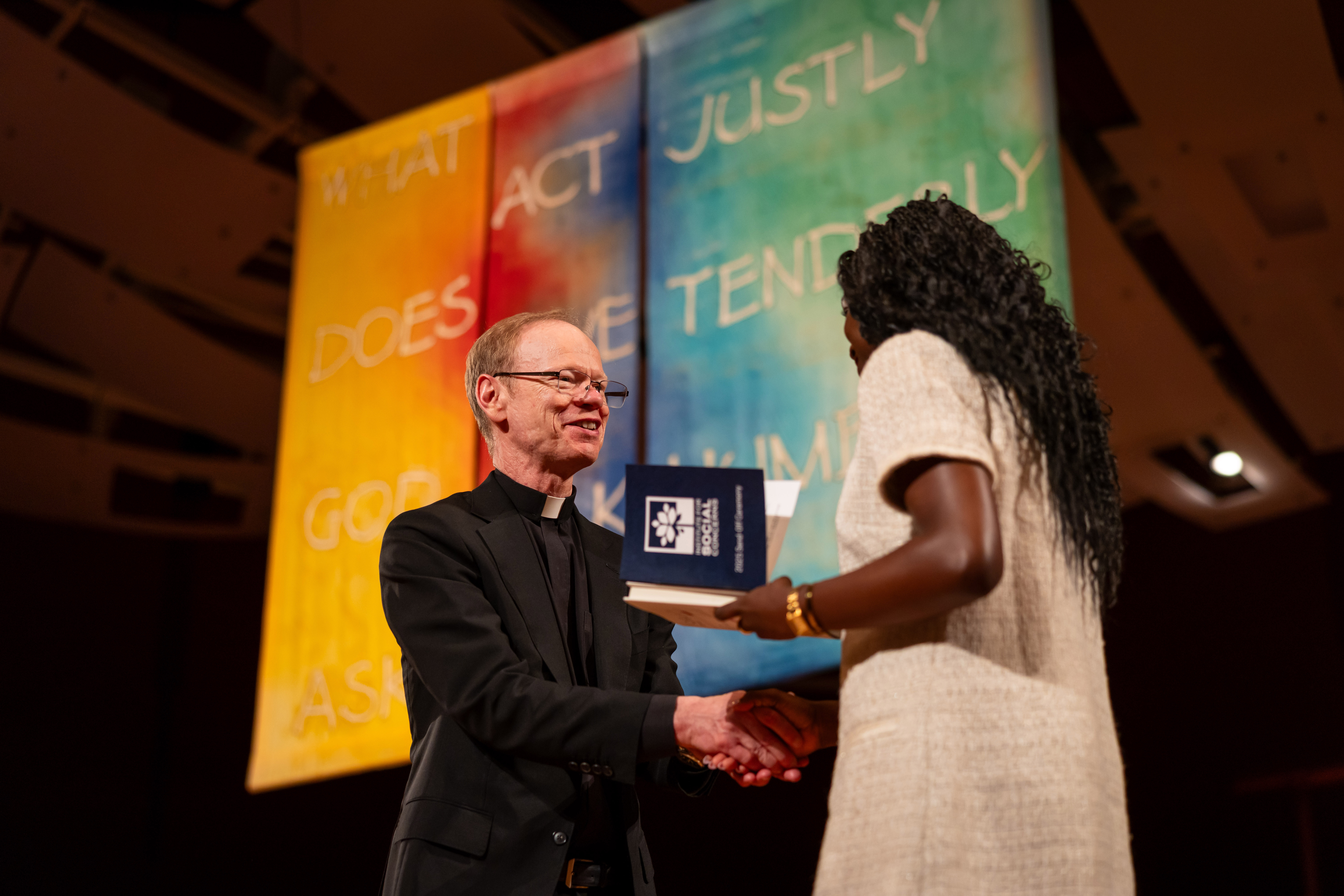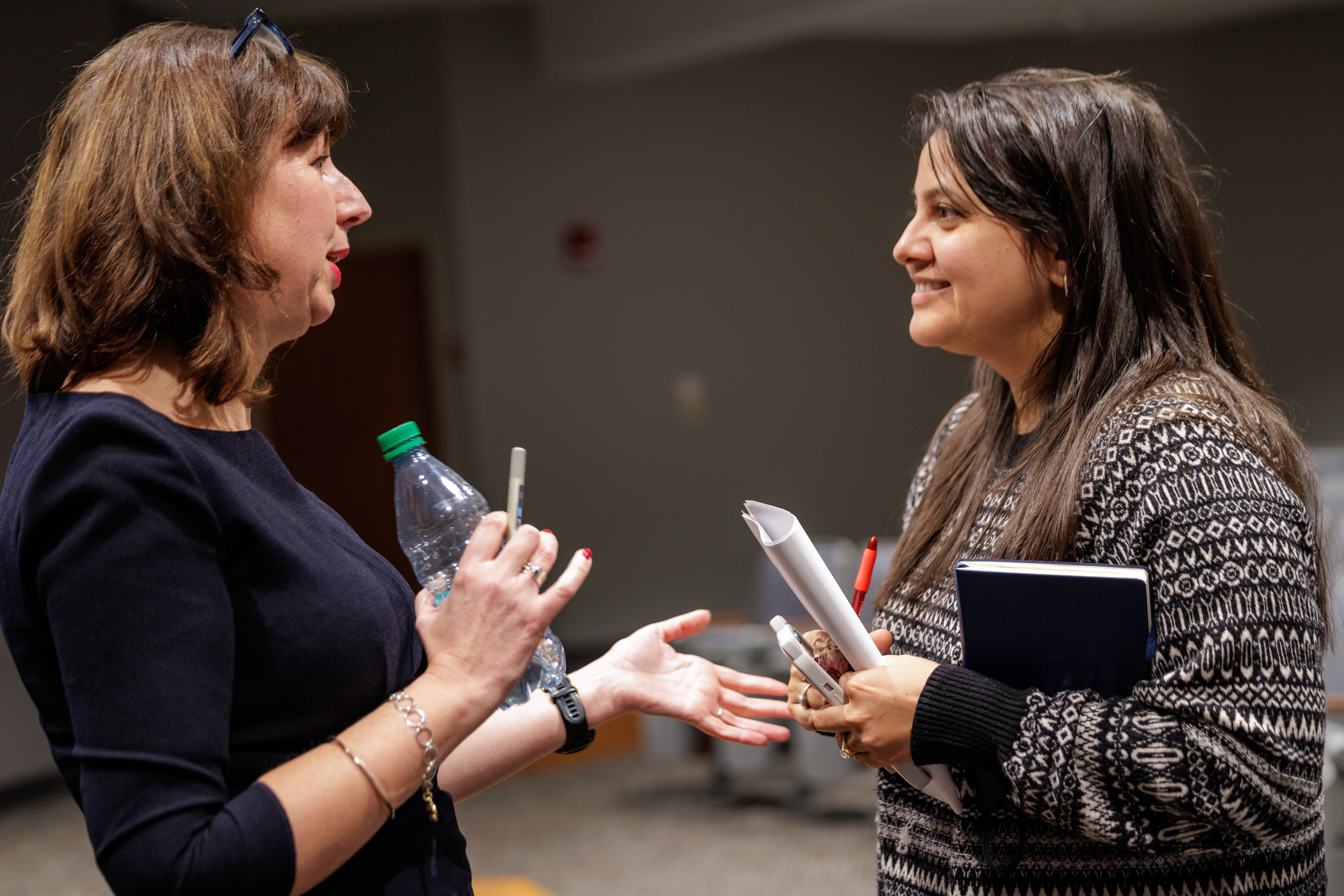South Bend’s Clemente Course graduates reflect on ‘taking that first step’ into college
June 27, 2024
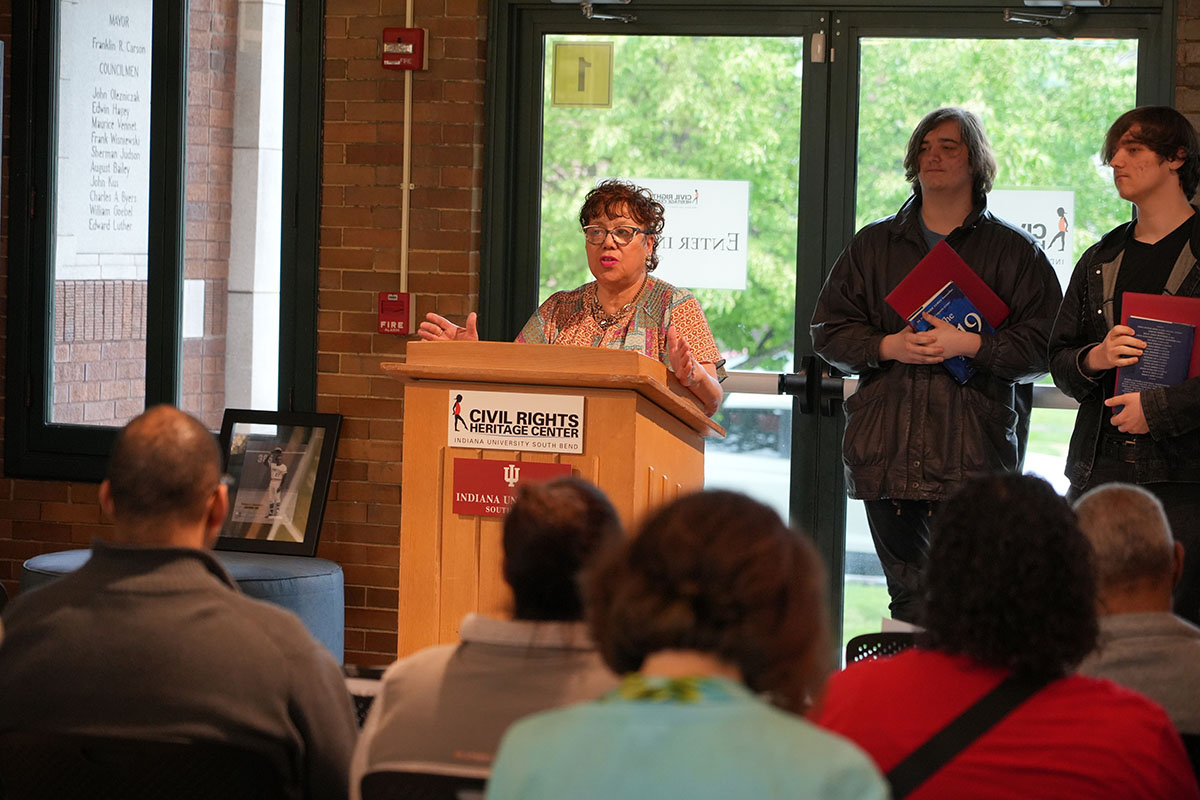
As a college student in the early 1970s, Oletha Jones started to feel a bit guilty seeing her father, a construction worker, struggle to pay tuition amid the ups and downs of the construction industry.
Even though higher education was a priority in her family, she decided to stop attending Indiana University South Bend to find gainful employment and work for a while before continuing toward her degree. Then she met her husband, and they started a family. “From there, I just really focused on my family,” she said. “But I always had the intention of going back to college.”
Jones had an opportunity to resume her education last fall when the Clemente Course in the Humanities became available locally through a partnership between the IU South Bend Civil Rights Heritage Center and the Institute for Social Concerns.
Bard College established the Clemente Course in 1996 out of the recognition that many people from low-income backgrounds and marginalized groups have had limited access to higher education. The program makes college-level courses available to people at no cost, including free books and course materials as well as transportation and child care.
The Institute for Social Concerns has promoted the democratization of education through other initiatives, such as Notre Dame Programs for Education in Prison. The partnership to bring the Clemente Course to South Bend is another way to extend the transformative opportunity of a college education to more community members.
In May, Jones and five other students in South Bend’s inaugural cohort of the Clemente Course celebrated their graduation from the program.
During the academic year, the students — who ranged in age from 19 to 75 — took courses in philosophy, U.S. history, literature, art history, and critical thinking and writing. They’re eligible to earn six credits from Bard College for their work and could transfer those credits to another college or university as they continue their education.
“Being part of this program was liberating and allowed me to be creative, which has really intensified my yearning to continue,” Jones said. “It gave me a thirst. It felt good to be in the classroom again.”
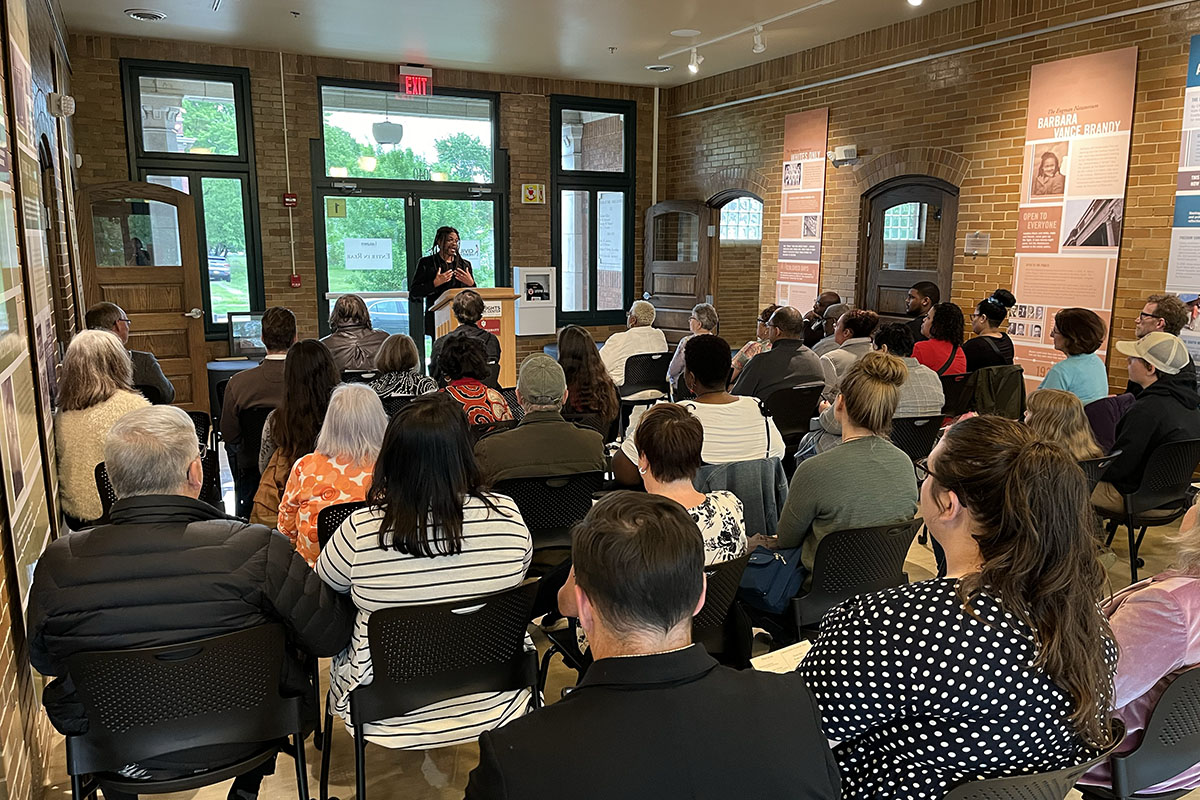
Professor Darryl Heller, director of the Civil Rights Heritage Center and a faculty fellow of the Institute for Social Concerns, called Jones and her classmates trailblazers for future Clemente students in the South Bend area. The program started small last year, but Heller said the goal is to enroll 25 students this coming fall.
“At heart, Clemente Courses rest on the premise that a liberal arts education is, well, liberatory,” Heller said in May at the graduation ceremony for the South Bend class. “Thus, our premise is grounded on the conviction that reflection in the humanities can create a foundation for people to engage the world around them in new ways.”
Pam Blair, another graduate of the inaugural Clemente class, is an academic programs assistant for Notre Dame’s Kroc Institute for International Peace Studies. She is also a poet and visual artist who hosts South Bend’s monthly Poetry Den.
“I went to art college out of high school, but I only completed three years due to financial difficulties,” Blair said. “The Clemente Course has started something in me where I want to finish that degree.”
Heller, who also served as the academic director for the Clemente Course in South Bend, taught the U.S. history course. The other four courses were taught by two IU South Bend professors and two Notre Dame professors.
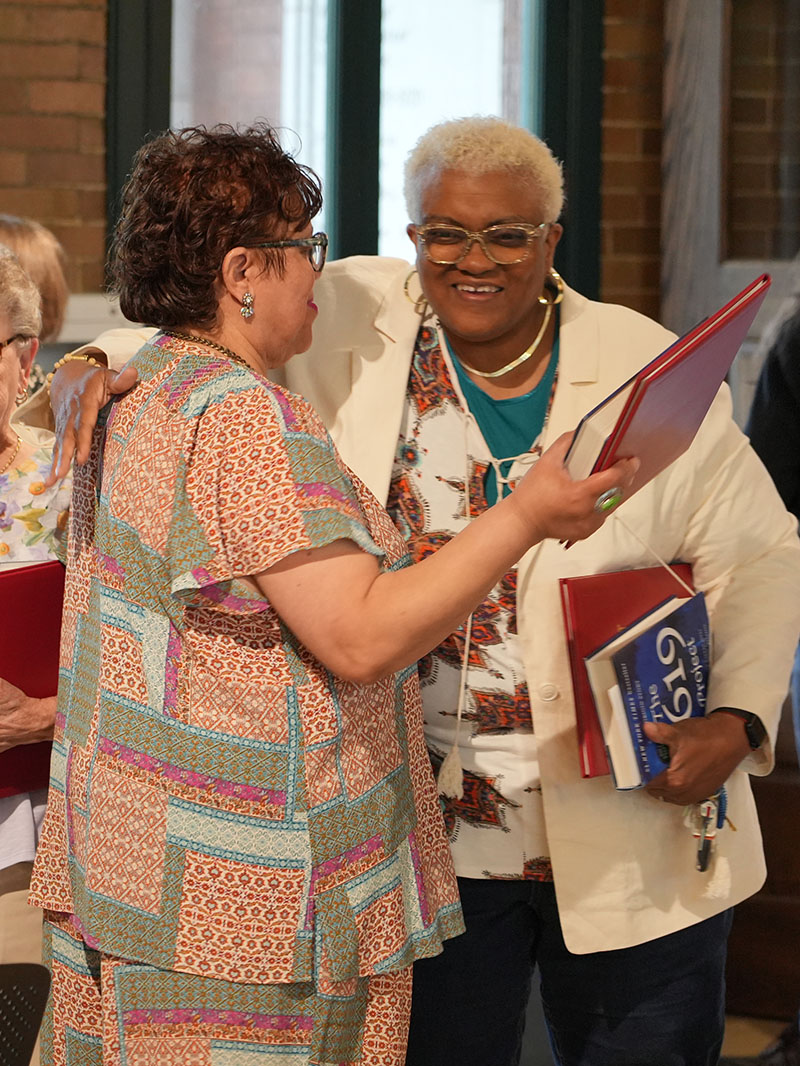
“All of our professors were excellent,” Blair said. “They were accommodating to all the individuals. We had older, middle-aged, and young students in there. Our teachers were really good about navigating that diversity in the classroom.”
Blair said the environment in the classroom was conducive to dialogue and learning for its own sake. “There were no bad questions,” she said. “The experience really opens your mind.”
Mark Sanders, a professor of English and Africana studies at Notre Dame and a faculty fellow of the Institute for Social Concerns, taught the Clemente Course’s literature class. He said the Clemente Course makes an enormous contribution to the community by providing entry-level college courses for adults finding their way into higher education.
“In my course, this year’s students embraced the challenge of reading William Shakespeare, Rita Dove, and Gabriel García Márquez, among many other authors, to immerse themselves in literary analysis’ intricacies and rewards,” Sanders said. “They developed many of the critical reading and writing skills essential for upper-level classes. And equally as importantly, they read and wrote in pursuit of greater knowledge, understanding, and discernment, indeed an independence of thought crucial for sustaining a democracy.”
Jones said she hopes others in the South Bend region take advantage of the opportunity the Clemente Course offers.
“Take that first step and open yourself up to get out of your comfort zone. At least take that first step. That’s what I did,” she said. “I made up my mind that I was just going to start and see where it would lead.”
Anyone interested in enrolling in the Clemente Course in the Humanities should contact Professor Darryl Heller at daheller@iu.edu.
Related Stories
-
Printmaking history—the institute partners with community to celebrate South Bend’s Latino heritage
-
Forming character through friendship—Virtues & Vocations conference promotes human flourishing in professional education
-
Go be justice—Sending off graduates to work for the common good
-
ReSearching for the Common Good: O. Amandhi Mathews
-
Toward a culture of encounter—Lecture series engages Pope Francis, Catholic social tradition

